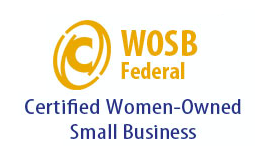
In celebration of Pride Month, we invited Michelle Redfern, our Senior Consultant based in Melbourne, Australia, to author this blog post.
Read ON!
---
I have been in a deeply committed and loving relationship with my (now) wife for nearly 20 years. Our relationship is public knowledge. However, in the early years of our relationship I wasn’t ‘out’ about my same sex relationship, particularly in my workplace. I made this choice because amongst other things, I was fearful of being judged and having my career aspirations affected because of my sexual identity. I worried about the negative consequences of being openly gay at work.
LGBTIQ+ people are often not able to bring their full self to work, feel like they have to hide elements of their life and have their psychological well-being compromised by feelings of ‘otherness’. This is a significant issue that 68% of LGBTIQ+ people in America are still grappling with.
The Significance of Otherness
Putting it simply, employees who consistently feel different from their colleagues (otherness) are more likely to not be reaching their full potential. This has implications that leaders need to pay attention to.
According to research feelings of ‘otherness’ in employees can lead to:
- A reduced likelihood of attracting career mentors and sponsors
- A reduced likelihood of being promoted
- An increased likelihood of diminished aspirations
- Reduced workplace satisfaction
- Decreased wellbeing
My experience of feeling ‘otherness’ meant that I limited my social interactions with my colleagues (particularly where partners were invited) and it also meant that I felt I couldn’t be my truly authentic self with the teams I led. Both of these behaviours, had they continued, would have proved career limiting for me;
- Not socializing with colleagues, bosses, clients and stakeholders meant I wasn’t enhancing my leadership brand, the brand of my organisation and it also meant I was limiting the opportunities that informal mentoring and networking bring.
- When it came to my leadership performance, I believe that not being or bringing my whole self to my work affected my ability to be a truly authentic, vulnerable and courageous leader. There is no doubt in my mind that I didn’t perform as well as I could as a leader back then to deliver the results and outcomes I was employed for.
This is significant because I expended a hell of a lot of energy on trying to fit in and be ‘normal’, rather than ‘other’. I know that my mental and emotional wellbeing was dreadfully compromised during this time, which was not good for my teams, my organisation and of course, my home life.
The Significance of Coming Out (again and again and again)
People assume that the heavy lifting is complete when gay people come out. Let me disabuse you of that fact. We still have to come ‘out’ all the time. When we meet new people in the workplace and are asked (in my case) what is your husband’s name and what he does. So we have to come out, again. When we’re invited to a social event and bring our partner and are asked who they are. So we have to come out, again. That’s significant because it takes energy that heterosexual people and couples simply do not have to expend.
LGBTIQ+ people also have to expend energy managing their participation in the workplace in subtle and significant ways. From answering seemingly innocent but insensitive curiosity (when did you decide to become gay?), to offensive office banter (ha, ha who is the man in the relationship?) to outright discrimination (only straight men get invited to the relationships made at golf/drinks/football that improve your career) means our work lives are being affected, as is our performance.
 1Source: Diversity Council of Australia
1Source: Diversity Council of Australia
So it’s little wonder that only 32% of the LGBTIQ+ community are fully out at work. It’s just too hard, too tiring and potentially career limiting.
The Significance of Leaders as Allies
Apart from being the right thing to do, leaders must pay more attention to the issues that LGBTIQ+ people still face in the workplace. They must also take action on creating inclusive workplace cultures and being visible, vocal allies for under-represented groups.
Leaders must do this because, research shows that LGBTIQ+ people who are fully, joyfully and confidently ‘out’ in their workplace are:
- 50% more likely to innovate than workers who are not out to everyone.
- 35% more likely to work highly effectively in their team.
- 28% more likely to provide excellent customer/client service.
Leaders who made a difference for me in the workplace did these things:
- Got to know me and other diverse people and asked how they could support us better in the workplace;
- Stepped back, learned more about the issues LGBTIQ+ people faced then took systemic action to eliminate barriers;
- Made a visible, vocal commitment to an inclusive workplace culture for LGBTIQ+ people (and kept doing it)
- Had a zero tolerance policy for poor language, harassment and discrimination
The LGBTIQ+ community is still marginalised, bullied, discriminated against and has higher than average under employment rates, higher than average rates of poor mental health and higher than average rates of serious assault and death.
So what you can do is to educate yourself on the significance of creating an inclusive workplace, be compassionate, show empathy and understand that even one act of kindness towards someone who identifies as an ‘other’ can make a difference.
---
Our new Diversity & Inclusion Training goes beyond gender. If you would like to talk more about how Leading Women can help you meet your Diversity & Inclusion goals please contact us!







